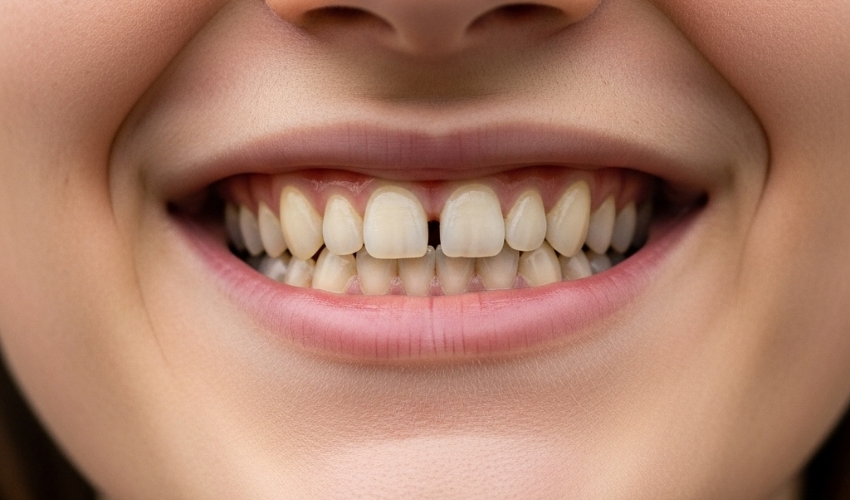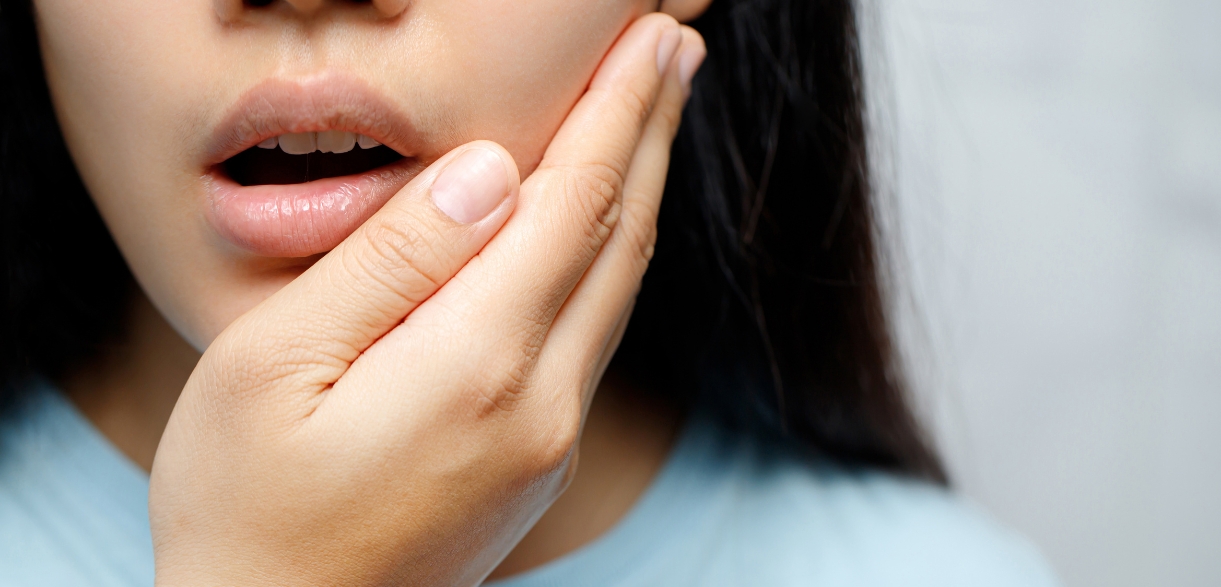Book An Appointment

Ah, the refreshing feeling of a cold glass of water on a hot day. But for some, that simple pleasure can come with a sharp, unwelcome sting in their teeth. If you’re one of those who shriek at the touch of ice or wince at the first sip of a chilled beverage, you’re not alone. Dental sensitivity is a common issue that affects millions of people worldwide. And while many factors can contribute to it, cold water often takes center stage as the culprit.
Understanding the Cold Rush
So, what’s happening inside your teeth when you take that fateful sip of icy water? It’s all about a rapid temperature change and its impact on the delicate structures within your teeth.
- Tooth Anatomy 101: Your teeth are made up of several layers, with the hard outer shell called enamel. This enamel acts as a barrier, protecting the softer inner layers from external stimuli, such as temperature changes. Beneath the enamel lies dentin, a porous layer containing microscopic channels called tubules. These tubules lead to the pulp, the innermost part of the tooth, which houses the nerves and blood vessels.
- The Chilling Effect: When you drink cold water, the temperature change causes the dentin to contract and expand rapidly. This movement triggers the fluid within the tubules to move as well, sending a signal to the nerves in the pulp. This, in turn, is what we perceive as that jolt of pain in our teeth.
Beyond the Chill: Other Culprits of Sensitivity
While cold water is a common trigger, it’s not the only one. Several other factors can contribute to dental sensitivity, including:
- Enamel erosion occurs when the enamel wears away due to factors such as acidic foods, drinks, or aggressive brushing, exposing the underlying dentin and making the teeth more susceptible to temperature changes.
- Gum recession: Receding gums expose the tooth root, which is covered in a softer layer called cementum. Cementum is less protective than enamel, making the root more sensitive to temperature and other stimuli.
- Cracks or fractures: Cracks or fractures in the teeth can provide a pathway for cold and other stimuli to reach the dentin and pulp, leading to sensitivity.
- Dental procedures: Certain dental procedures, such as fillings or crowns, can irritate the nerves in the teeth, causing temporary sensitivity.
Living with Sensitivity: Finding Relief
If you’re struggling with dental sensitivity, there are several things you can do to find relief:
- Identify the triggers: Pay attention to what triggers your sensitivity and try to avoid those triggers whenever possible. This may include cold water, acidic foods, or hot beverages.
- Use desensitizing toothpaste: These toothpastes contain ingredients that block the tubules in the dentin, reducing sensitivity.
- Over-the-counter pain relievers: Over-the-counter pain relievers, such as ibuprofen or acetaminophen, can help temporarily relieve the pain associated with sensitivity.
- Professional treatments: In some cases, your dentist may recommend professional treatments for sensitivity, such as fluoride applications or bonding to cover exposed tooth roots.
Regular dental checkups and cleanings are essential for maintaining good oral health and preventing dental sensitivity. Your dentist can assess the cause of your sensitivity and recommend the most appropriate treatment options.
Living a Life Unfazed by the Cold
With proper care and management, you can control dental sensitivity and enjoy the simple pleasures of a cold drink on a hot day. So, don’t let sensitivity dictate your beverage choices. Talk to your dentist in Charlotte, find the right approach, and reclaim your right to a refreshing sip without a flinch!
Sipping cold water through a straw can help minimize contact with your teeth and reduce sensitivity.





